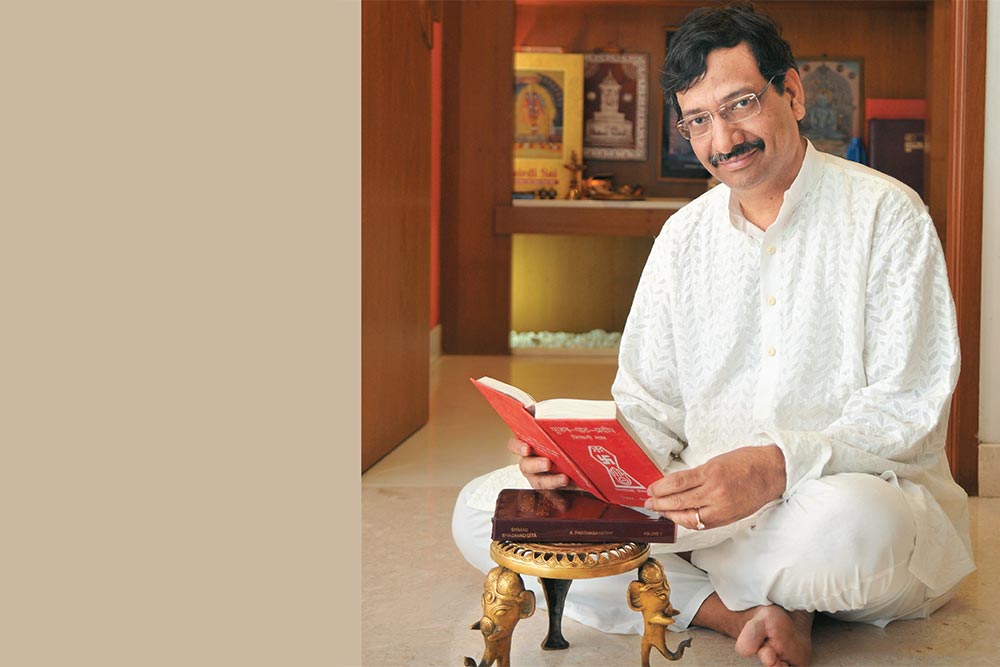The one thing that always catches Arun Jain’s attention is books. The affable book aficionado, who is the chairman of Chennai-based Polaris Financial Technology, is not partial to the classics, whodunits or how-tos but rather on books rich with spiritual insights. It wasn’t always like this. Management was a subject of renewable fascination till, as he read it more and more, Jain found, “Management theories and case studies often become obsolete because what is good for one decade doesn’t hold good for the next. No book has survived for more than 10 years — expect, maybe, The Seven Habits of Successful People.” That’s when he turned his attention to the Indian scriptures. “They have lasted for thousands of years so they must have something right,” he smiles, explaining why he feels so drawn to spiritual reading.
Learning is a holistic process, Jain says, and it requires the creation of curiosity. “I often say that our mind is like a three-bedroom house,” he explains. “Most of the time, we stay in one room, which becomes our comfort zone, and we don’t explore the other spaces or rooms that God has given us.” So, he says, our minds are not receptive to new things, and 80% of what others say gets lost in the first stage (perception). Naturally, very little is retained in the end.
Connecting his spiritual learning to contemporary situations, Jain developed a four-hour training programme he calls Unmukt for the top 10-15% of Polaris’ personnel. Unmukt, which means free from bondage, not only simplifies the learning process but also looks at the barriers to learning. “We also look at the role anger and conflict play because they, too, are barriers to learning,” says Jain. Soon, the four-hour session became the most sought-after training programme within Polaris. Jain rues that only rituals come to the mind when we speak of spirituality, even though the Indian scriptures are aligned to asking questions. “I call the Bhagvad Gita the FAQs on life not only because it’s written in a Q&A format but because we can find answers to some of the most difficult questions in it,” he says with absolute conviction.
Much can be learnt from the West as well, Jain adds, “I admire their research and design capabilities, and ability to communicate.” Indeed, he feels that the weakest link in the Indian scriptures is their focus on self-learning, not dissemination. Looks like the depth of Western research and the holistic approach of Indian scriptures combine to give Arun Jain the best of both worlds.











